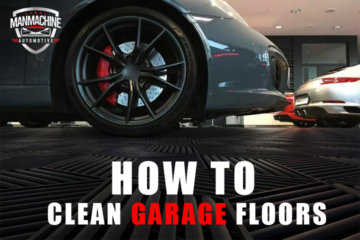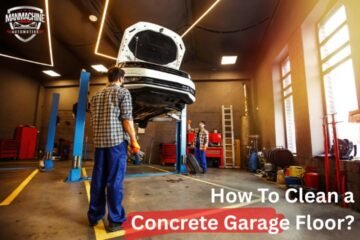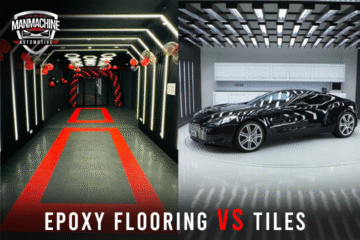Your garage floor may be visually appealing, but it should not be out of your mind. Whether you park your car, set up a workshop, or just use it for storage, the garage floor takes your heartbeat. Over time, it can add daily wear. The questions that many garage floor owners ask: How long does garage flooring last?
On this broader durability blog, we will learn about the lifespan of different garage floors, the factors that affect their longevity, how to maintain them, and when to consider a replacement.
Why is Garage Flooring Durability a Crucial Thing?
Before getting into its depth, it is essential to know why the durability of the garage is necessary:
- Safety: A torn or damaged floor elevates the risk of sliding or tripping.
- Aesthetics: Durable floors help in keeping your garage looking clean and polish.
- Protection: A good floor protector for the concrete from moisture and chemicals.
- Investment returns: A long-term and high-quality garage floor lessens the frequency of costly repairs and replacements.
Factors that Affect the Durability of Garage Floors
Many factors affect how long does garage flooring last, regardless of type:
- Climate conditions: Freeze-thaw cycles, humidity, and temperature extremes can affect some floors.
- Foot and vehicle traffic: The more often you use your garage, the more chances of getting wear that it will sustain.
- Chemical exposure: Oil leaks, road salts, brake fluids, and cleaners can destroy certain materials.
- The condition of the fall: If the underlying concrete is uneven or torn, this affects surface durability.
- Establishment quality: Proper installation is essential. A DIY work can be done poorly until a professional is installed.
- Maintenance routine: Regular cleaning and care improve the lifespan of the floor.
The Lifespans of Numerous Garage Floor Kinds
Let’s break down the garage floor lifespan and general features of a basic garage flooring:
1. Bare Concrete
Lifespan: 20-25 years (with proper sealing)
Overview: While concrete is the base for most garages, uncoated concrete is porous and vulnerable to cracking.
Durability pointers:
- Prone to staining, dusting, and cracking without sealant.
- Moisture can cause damage for a long time.
Maintenance pointers: Seal the concrete after a few years to save you from water and chemical infiltration.
2. Epoxy coating
How long do epoxy garage floors last: 5-10 years (basic), up to 15-20 years (high end)
Overview: Epoxy is a preferable coating that binds to the floor of concrete, giving a tough, protective floor.
Durability pointers:
- Averts chemicals, stains, and friction.
- It can turn yellow or peel off if shown out to harmful UV rays or when it is misapplied.
Maintenance tips: Do clean up the spills instantly and prevent dragging off any heavy equipment to avert any scratching.
3. Polyaspartic and Polyurea Coatings
Lifespan: 10-20 years
Overview: These are modernised options of epoxy, which give immediate healing times and proper UV resistance.
Durability pointers:
- Standstill, even in excessive temperature and vehicle traffic, is better as compared to epoxy.
- More flexible and less prone to cracking.
Maintenance suggestions: Helps preserve annual inspection and occasional resealing, which assist in maintaining the finish.
4. Garage floors (PVC or polypropylene)
Lifespan: 10- 20 years
Overview: It is easy to put in interlocking tiles and comes in different kinds of textures and colours.
Durability pointers:
- Impact resistant, but may become loose or wrapped in with extreme heat.
- Individual tiles can be changed according to the requirement.
Maintenance tips: Clean routinely underneath the tiles to avert any trapped moisture or dirt growth.
5. Garage Floor Mats
Life: 3-5 years (light use), 5-10 years (supreme)
Overview: Mats are portable and simple to install, generally made of rubber or vinyl.
Durability pointer:
- The risk of curling, changing or tearing under heavy equipment.
- The most suitable for temporary or minimum use garages.
Maintenance tips: Regular vacuuming and relocation prevent premature wear.
6. Concrete stains or paints
Lifespan: 2-5 years
Overview: These are the most affordable solutions, but provide the least durability.
Durability pointers:
- Vulnerable to peel, disappear, and chip.
- Continuous reapplication is required.
Maintenance tips: Consider applying a sealant topcoat to extend the lifespan.
Durability Comparison Table
Here is a comparison table of bare concrete, epoxy coating, polyaspartic, garage floor tiles, garage floor mats, and paint or stain as follows:
| Flooring Type | Avg. Lifespan | Pros | Cons |
| Bare Concrete (sealed) | 20–25 years | Strong base, low cost | Prone to dust and cracks |
| Epoxy Coating | 5–15 years | Sleek look, chemical-resistant | Can peel, sensitive to UV light |
| Polyaspartic/Polyurea | 10–20 years | UV-stable, fast curing | Expensive |
| Garage Floor Tiles | 10–20 years | Easy to replace, stylish | Susceptible to movement |
| Garage Floor Mats | 3–10 years | Budget-friendly, portable | May tear or slide |
| Paint or Stain | 2–5 years | Inexpensive, easy to apply | Not durable, needs frequent touch-ups |
How to Extend the Garage Floor’s Life
Whether you have invested in epoxy or chosen interlocking tiles, some simple habits can help you get the most out of your flooring:
- Swipe Regularly: Waste and sand papers can function as under the feet or tires.
- Clean Spills Promptly: In particular, oil, gasoline, and solvents.
- Use floor mats or Rugs: Especially under the work areas or where fluids can drip.
- Avoid pulling heavy equipment: Use rolls or lifts when shifting machines or equipment.
- Safeguard from sunlight: Use UV-resistant coating or shade the garage entrance to prevent yellowing.
- Do a timely inspection: Look for cracks, lifting, or bubbles and repair them instantly.
When Are You Going to Replace the Garage Floors?
How long does garage flooring last? Therefore, even the best floor does not last forever. Here is a replacement to consider:
Cracks or chips are constantly appearing: A sign that shows it is weakened.
Discolouration or stains do not disappear: Especially on epoxy or paint coating.
Tiles or mats are loose or damaged: May be a risk of stumbling.
Water damage or moisture traps: Mould, mildew or wrapping are warning signs.
Loss of Grip or Gloss: A dull, slippery floor reduces safety and appeal.
Should You Hire a Supporter or Do a DIY?
Some durable garage flooring options, such as interlocking tiles or mats, are easy for a DIY job. However, for coatings such as epoxy or polyaspartic, professional installation requires appropriate surfaces, treatment, and finishing. An error in the application can cut its lifespan in half.
If you are searching for long-term results, professional installation is basically worth the investment.
Which Garage Floor Lasts and How Long Does Garage Flooring Last?
If durability is your top concern, Polysapartic/Polyurea coatings and garage floor tiles provide the best balance between flexibility and longevity of garage flooring.
Polysapartic coatings are seamless, chemically resistant, UV-resistant and handle all types of weather.
The garage tiles provide modular repair. Each piece can be replaced piece by piece, and when performed, they can last 10-20 years.
Match Floor Tiles according to Lifestyle
There is no one answer to all the questions of how long garage flooring lasts. The answer usually differs, depending on how you use a garage, your local climate, your budget, and how much you want to manage it.
Here’s a quick sheet for knowing simple terms, like for maximum durability, walk with polysapartic or heavy tiles; for quick improvement or rent: Use garage mats or paint/stains; for power for aesthetics: Epoxy is a reliable intermediate ground; and for long-term but having a low budget: Seal only concrete can be fixed with minimal traffic.
Conclusion
The Manmachine Automotive garage flooring is more than just a floor; it is a long-term investment in your work efficiency, appearance, and value. Knowing how long garage flooring lasts and what it takes to maintain it will assist you in selecting the best solution for your space.
Take care of your garage floor, and it will take care of your car, equipment, and everything else for the coming years.
FAQs
Q1. Could epoxy floors last for 20 years?
Yes, professionally used advanced epoxy systems can last up to 20 years with proper maintenance.
Q2. Do the garage floor mats damage the concrete?
Usually not, but if the moisture gets stuck, it can give rise to mold or mold problems.
Q3. Is Polyaspartic is good than epoxy?
Yes. Polyaspartic coatings are quickly cured, last a long time, and have better UV resistance compared to epoxy.
Q4. How do I maintain my garage tile?
Daily vacuum or mop them, and sometimes pick them up to clean underneath.
Q5. Can I use a new layer of epoxy on top of the old one?
Yes, but the old surface should be adequately prepared, cleaned, sanded, and dug for adhesion.



0 Comments